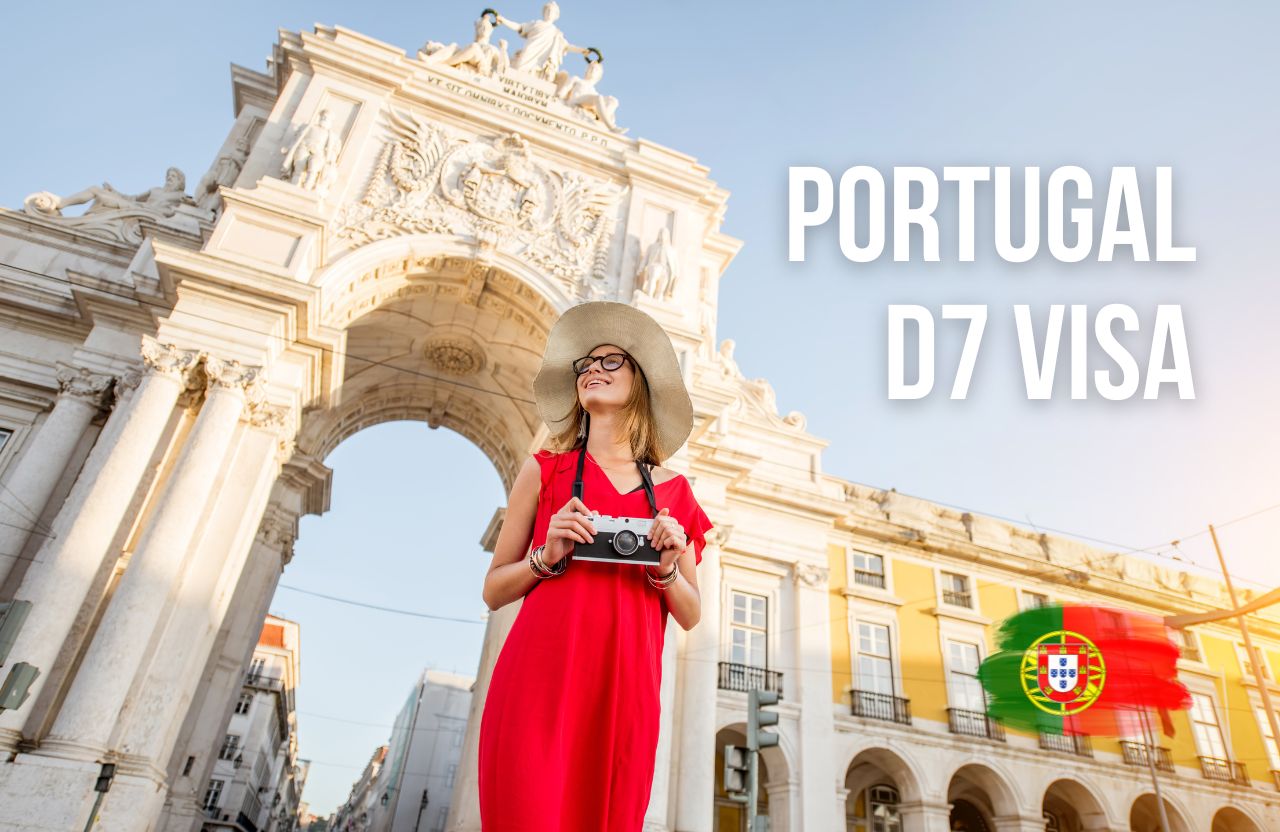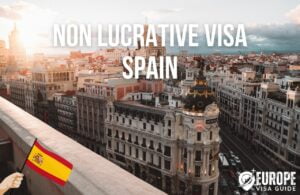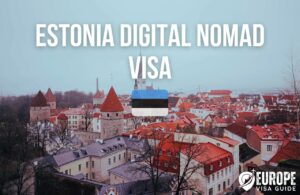
Table of Contents
If you’ve decided to move to Portugal, the beautiful country known for its rich history, stunning landscapes, and vibrant culture, you’ve made an excellent choice. But before you pack your bags and set off on your exciting adventure, there are a few things you need to know about the residency process in Portugal. In this comprehensive guide, we’ll walk you through everything you need to know about the Portugal D7 visa, including the eligibility requirements, application process, pros and cons, and more. So let’s dive in!
What is the Portugal D7 Visa?
The Portugal D7 visa is a residency program that allows non-EU/EEA/Swiss citizens to become permanent residents in Portugal by demonstrating a means of passive income. This visa is an ideal fit for individuals who wish to live full-time in Portugal, such as retirees or those with passive income streams. It’s important to note that starting from October 2022, individuals with income from remote work salary should apply for the Portugal digital nomad visa instead of the D7 visa.
Pros and Cons of the D7 Visa
Before we delve into the requirements and application process, let’s take a closer look at the pros and cons of the d7 visa Portugal
Pros:
- Visa-free travel across the whole Schengen area for up to 90 days in every 180 days.
- Access to high-quality state healthcare, most of which is free or low-cost.
- Ability to bring your family to Portugal using the EU family reunification program.
- Full residency rights in Portugal without the large investment required for the Golden Visa.
- One of the lowest monthly income passive requirements among EU countries.
- Eligibility for Portugal’s special tax program, the Non-Habitual Residency (NHR) scheme.
- Opportunities to study, work, or launch a business in Portugal.
- Residency in one of Europe’s most affordable countries in terms of cost of living.
- Living in Portugal, one of the world’s safest countries.
- The ability to apply for Portuguese citizenship after just five years of residency.
Cons:
- Having a regular source of passive income is crucial; applying with only savings is not recommended.
- Lack of flexibility in physical stay requirements; Portugal should be your primary country of residence.
- Declaration of worldwide income to Portugal every year once you become a resident.
- The application process requires several documents and is subject to specific embassy rules.
- The inability to freely move to another EU country without an additional visa.
Eligibility Requirements
To be eligible for the Portugal D7 visa, you must meet the following requirements:
- Holding a non-EU/EEA/Swiss passport.
- Having a clean criminal record.
- Demonstrating a means of passive income sufficient to live on in Portugal.
- Providing proof of sufficient savings to support yourself and any dependents for at least one year.
Income Thresholds
The Portuguese d7 visa requires a minimum monthly passive income equivalent to the Portuguese minimum wage, which is €740 per month or its equivalent in another currency. However, it’s recommended to have a minimum of €1,000 per month for a single applicant to improve the chances of a successful application. If you have a dependent spouse, you should add 50% of the main applicant’s income, and for each dependent child under 18, you should add 30% of the main applicant’s income.
Types of Income Accepted
The Portugal D7 visa accepts various types of income, including:
- Pension income.
- Income from renting a property.
- Dividends from investments or a limited company.
- Royalties.
- Intellectual property.
Other Essential Portugal D7 visa requirements
In addition to the income and savings requirements, there are a few other essential elements you need to consider when applying for the Portugal D7 visa:
NIF (Portuguese Tax Number)
The NIF is a crucial element of everyday life in Portugal and is essential for your D7 visa application. It’s recommended to obtain your NIF before starting your D7 application. You can either apply for it yourself using an online service like Bordr or have your lawyer handle it as part of the application process.
Portuguese Bank Account
Opening a Portuguese bank account is another prerequisite for the D7 visa application. This is where you’ll deposit your savings for the first year. Similar to obtaining your NIF, you can open a Portuguese bank account remotely using a service like Bordr or through your lawyer. Having a Portuguese bank account from the beginning will make your daily life in Portugal much easier.
Proof of Passive Income
To qualify for the D7 visa, you’ll need to provide documents that prove your ability to financially support yourself and your family while in Portugal. This includes bank statements for at least six months, showing the regular income going into your account, as well as proof of the source of the income, such as dividend vouchers, rental contracts, or pension eligibility letters.
Proof of Savings
To satisfy the savings requirement, you’ll need to deposit the required amount into your Portuguese bank account before submitting your D7 visa application. The minimum amount is 12 times the minimum monthly income level, which equates to €8,880. If you have a dependent spouse, you should add 50% of this amount, and for each dependent child under 18, you should add 30% of this amount.
Proof of Accommodation
Previously, many Portuguese embassies accepted Airbnb or hotel bookings as proof of accommodation for the D7 visa application. However, most embassies now require proof of a 12-month rental agreement or property deeds. Real estate agents can arrange video viewings to help you find a suitable rental. Alternatively, if you have friends or relatives living in Portugal, you may be able to submit a letter from them inviting you to live with them temporarily.
Health Insurance Cover
While waiting for your residency permit, you’ll need to have travel health insurance in place to cover any medical emergencies. It’s recommended to have at least six months of coverage, but preferably 12 months to allow for any delays in issuing your residency permit. SafetyWing is a highly recommended travel insurance provider that combines affordability with convenience.
Criminal Record Certificate
You’ll need to apply for a clean criminal record certificate from the country where you’ve lived for the past two years. The specific requirements may vary depending on your country of residence. It’s important to have a clean criminal record to increase your chances of a successful D7 visa application. However, minor crimes that would be punished with less than one year of imprisonment under Portuguese law may still be considered.
Minimum Physical Stay Explained
One of the key requirements of the Portugal D7 visa is to make Portugal your primary home and become a Portuguese tax resident. This means you should avoid being out of Portugal for more than six months consecutively or eight months non-consecutively in any given year. While Portugal doesn’t usually check the physical stay requirements, it becomes crucial when renewing your residency permit. The immigration authorities may ask you to prove how much time you spent in Portugal during the previous year. Failing to meet the minimum physical stay requirements may result in a refusal to renew your residency permit.
Bringing Your Family to Portugal
The Portugal D7 visa allows you to bring your dependent family members to Portugal with you. The following family members can be included in your application:
- Spouse or long-term partner (of more than two years).
- Dependent children under 18.
- Dependent children under 25 (if they are in full-time education).
- Dependent parents (over 66 years old or entirely financially dependent on you).
Please note that other relatives, such as siblings, are not eligible to join your application and must apply for their own D7 visa. If your spouse or long-term partner has their own source of passive income, it’s recommended to apply for two separate D7 visas to expedite the processing time at the embassy.
Documents Required
To successfully apply for the Portugal D7 visa, you’ll need to gather the following documents:
- Non-EU/EEA and non-Swiss passports with at least six months of validity for all applicants.
- Completed Portugal D7 visa application form.
- Two passport photos.
- Portuguese bank account (can be opened remotely using services like Bordr).
- Bank statements from any bank dating back six months, showing proof of regular passive or remote income.
- Proof of accommodation, such as property deeds, rental agreements, or a letter from friends or relatives in Portugal.
- Clean criminal record certificate from your current country of residence.
- Private health insurance or suitable travel insurance for the first 12 months.
The Application Process Explained
Applying for the Portugal D7 visa involves a two-stage process. Let’s take a closer look at each stage:
Stage 1: The Portuguese Embassy
The first step is to book an appointment at the Portuguese embassy or consulate in your country of citizenship or legal residence. Prior to your appointment, ensure that you have all the required supporting documents for your application. It’s important to give yourself enough time to complete this process, especially when obtaining the clean criminal record certificate, which may take some time to arrive.
Once you have gathered all the necessary documents, attend your appointment at the embassy and submit your complete application package to the embassy officials. After submitting your application, there is typically a waiting period of around 6 to 8 weeks (depending on the embassy) before your visa is ready. The embassy will send your passport back to you via registered mail with the Portugal D7 visa attached to a single page. This visa is double-entry and valid for four months from the date of issue.
Stage 2: Portugal Immigration and Borders Service (AIMA)
The second stage of the Portugal D7 visa process takes place once you enter Portugal with your D7 visa. Upon arrival at the border control, your D7 visa allows you to enter Portugal as an applicant for D7 residency.
Your appointment with the Portugal Immigration and Borders Service (AIMA) should have already been arranged for you when your visa was issued. You can find the details of your appointment on your visa page in your passport. At the AIMA appointment, an official will capture your photo, fingerprints, and signature. They will also verify your personal details and ask for your NIF number. Following that, you’ll need to pay a fee for issuing the residence permit.
Once your payment is complete, your residence permit will be processed and sent by mail to your Portuguese home address. The timeline for receiving your residence permit can vary, but it may take a couple of months. Once you have your residence permit, you can enjoy all the benefits of being a Portugal resident, including access to state healthcare, the right to work or open a business in Portugal, and more.
Renewing Your Residency Permit
The residence permit you receive in the second stage of the D7 visa process is considered a temporary residency permit. Therefore, you’ll need to renew it several times until you reach the five-year mark. Your first residency permit will typically be valid for two years, after which you’ll need to renew it. The second renewal lasts for three years. Once you have maintained your residency status for five years, you’ll be eligible to apply for permanent residency in Portugal or even Portuguese citizenship.
D7 Visa vs. Golden Visa
Now that we have covered the details of the Portugal D7 visa, let’s compare it to another popular option, the Golden Visa. Here’s a helpful chart to help you understand the differences between the two:
|
Feature |
D7 Visa |
Golden Visa |
|---|---|---|
|
Physical Stay Requirements |
183 days per year |
7 days per year |
|
Tax Residency in Portugal |
Required |
Optional |
|
Passive Income Requirement |
At least €740/month |
None |
|
Investment |
None |
Minimum €280,000 |
|
Citizenship Timeline |
5 years |
5 years |
|
Access to NHR Tax Scheme |
Yes |
Yes (if tax resident) |
The D7 visa is best suited for individuals who want to make Portugal their primary home and have a reliable source of passive income. On the other hand, the Golden Visa is more flexible and allows individuals to maintain their existing life in their home country while spending time in Portugal.
Frequently Asked Questions
Can I apply for the D7 visa online?
No, the D7 visa application must be submitted in person at a Portuguese embassy or consulate in your country of citizenship or legal residence.
How long does the D7 visa process take?
The processing time for the D7 visa varies depending on the embassy, but it typically takes around 6 to 8 weeks. However, the entire application process, including obtaining the residence permit, can take up to six months.
Can I work in Portugal with the D7 visa?
Yes, once you receive your residency permit, you are allowed to study, work, or open a business in Portugal.
How long is the D7 visa valid for?
The initial D7 visa is valid for four months. After entering Portugal, you’ll use the visa to apply for a residency permit. The first residency permit is valid for two years. Subsequent renewals will extend the validity.
When should I start the D7 visa application process?
It’s recommended to start the application process at least two months before your planned travel to Portugal.
How long does it take to complete the entire D7 visa application process?
From beginning the D7 visa process to receiving your residency permit, it can take up to six months, depending on various factors.
What are the passive income requirements for the Portugal D7 visa?
The official passive income requirement is at least €740 per month for a single applicant. However, it’s advisable to have a minimum of €1,000 per month due to rising living costs, especially in cities like Lisbon.
Can I apply for the D7 visa with only savings and no passive income?
It is not recommended to apply with only savings, unless your savings can generate enough interest to meet the passive income requirements.
Can I get Portuguese citizenship using the D7 visa?
Yes, after maintaining your residency status for five years, you’ll be eligible to apply for Portuguese citizenship.
Can I use Airbnb as proof of accommodation for the D7 visa application?
Most Portuguese embassies no longer accept Airbnb bookings as proof of accommodation. It’s now generally required to provide a 12-month rental agreement or property deeds.
Next Steps
The Portugal D7 visa presents an excellent opportunity for individuals seeking permanent residency in Portugal. With its relatively straightforward requirements and abundant benefits, the D7 visa is an attractive option for retirees, digital nomads, and those with passive income streams. Now that you have a comprehensive understanding of the D7 visa, you can confidently take the next steps toward making Portugal your new home. Good luck with your application process and enjoy your exciting journey in Portugal!





